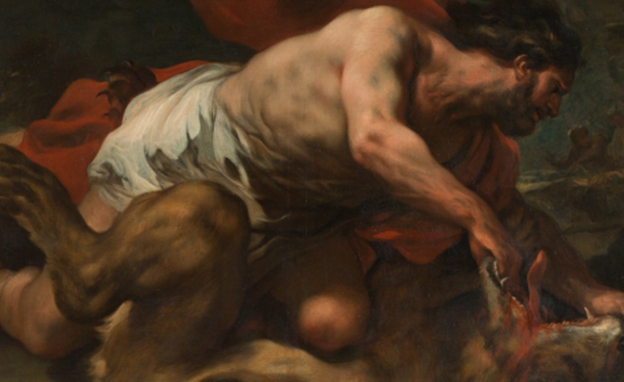Plenty of people have secrets and agendas. Agendas lie behind the actions people take, or try to make take place. Secrets are held as influence over others, or the intentions behind an agenda someone wants to put in place. Of course, not all secrets and agendas are bad.
In Judges 14, we are introduced to three people or groups with secrets and agendas. Samson has an agenda and secrets. The Philistines have an agenda, and want to know secrets. Finally, God has an agenda in the actions of Samson and the Philistines. This passage reminds us that whatever the secrets, agendas, and actions of sinful people, God’s agenda is the one which carries the day.
Samson, now a grown man, went down from the Israelite occupied hills to a Philistine town in the plains where he spotted an attractive Philistine woman (v.1). Samson demanded that his parents arrange for their marriage, to the upset of his parents who would prefer he marry an Israelite rather than a pagan (vv.2-3).
Samson refused, because it did not fit his oddly ungodly agenda “she is right in my eyes” (v.3). But this agenda of Samson’s was part of God’s agenda, to create tension between Israel and Philistia (v.4), since the Israelites did not seem concerned with their oppression (13:1).
While on the way to secure the woman’s hand in marriage, Samson tears an attacking lion to shreds (vv.5-7). This secret act will serve as the basis for a riddle, but as Samson was empowered by the Holy Spirit it demonstrates God’s agenda to strengthen Samson as Judge despite his unfitness. An unfitness which is hinted at again when days later, Samson secretly eats honey from a hive nested in the dead carcass, despite the Nazirite vows (vv.8-9).
Samson then arranged a drinking party for thirty Philistine men provided to him to celebrate his coming marriage (again, Nazirites should not drink, vv.10-11). To spice things up, Samson proposed a bet – solve a riddle for thirty sets of clothes (vv.12-13).
After three days the Philistines could not solve the riddle, lacking the secret shared between us and Samson of the lion and bees (v.14). Since dispossession and humiliation by some backwards Israelite does not fit the Philistine agenda, they pressured Samson’s wife and family with death if she did not spill the beans (v.15).
Samson has a weakness for women, which will only become more apparent. Samson’s wife, understandably fearful, pleaded with Samson for the answer (“don’t you love me?”) and Samson eventually gave in (vv.16-17).
“He told” is quickly followed by “she told” and the Philistines, armed with the secret, felt their agenda had the upper hand (vv.17-18). But Samson is no fool; he realised that they only knew because they had “plowed with my heifer” (v.18) to get the answer.
Since Samson’s secret was sprung and his agenda foiled, Samson was enraged. But this was all part of God’s plan (v.4). So to meet his side of the bet, Samson descended on the Philistine town of Ashkelon and, empowered and led by the Holy Spirit, struck down thirty of Ashkelon’s men to steal their garments and give them to the successful riddlers (v.19).
Samson’s wife was given to his best man (v.20). Samson had returned home, angry and spouseless (v.19). All seemed okay in the Philistine town of Timnah where the antics had occurred.
But there was trouble brewing between Samson and Israel and their Philistine overlords, according to the agenda of God. Samson’s attack on Ashkelon had started God’s plan to begin to deliver Israel from Philistine (13:5).
There are plenty of secrets and agendas operating in this passage. But all of these secrets and agendas were part of God’s agenda. There is little godliness in action in this chapter, perhaps only in Manoah and his wife hoping that Samson will marry an Israelite instead of a Philistine. However, ungodly agendas and secrets of Samson and the Philistines advance God’s agenda in creating tension between these two.
God uses the sinful and messy to serve his saving purposes. After all, even our most righteous acts are tainted by sin. How much more so our unrighteous ones? And yet, God works in our sinful acts, agendas, and secrets to sanctify us through adversity and struggle and advance his kingdom.
This is most apparent in righteous Jesus’ death on the Cross to save us from our sins. Jesus’ crucifixion was the act of sinful men, pursuing their own agendas and secret desires but also according to the definite plan and agenda of God (Acts 2:23).
Often the sinful tragedies of our lives, whether from our acts, those of others, or those of living in a sinful world, seem purposeless. But those same tragedies create opportunities for little acts of God’s providence, through loving deeds or the Spirit’s provision, to awaken us to our sinfulness and our need to rely on God for deliverance. To put aside our secrets and agendas and embrace God’s agenda.

